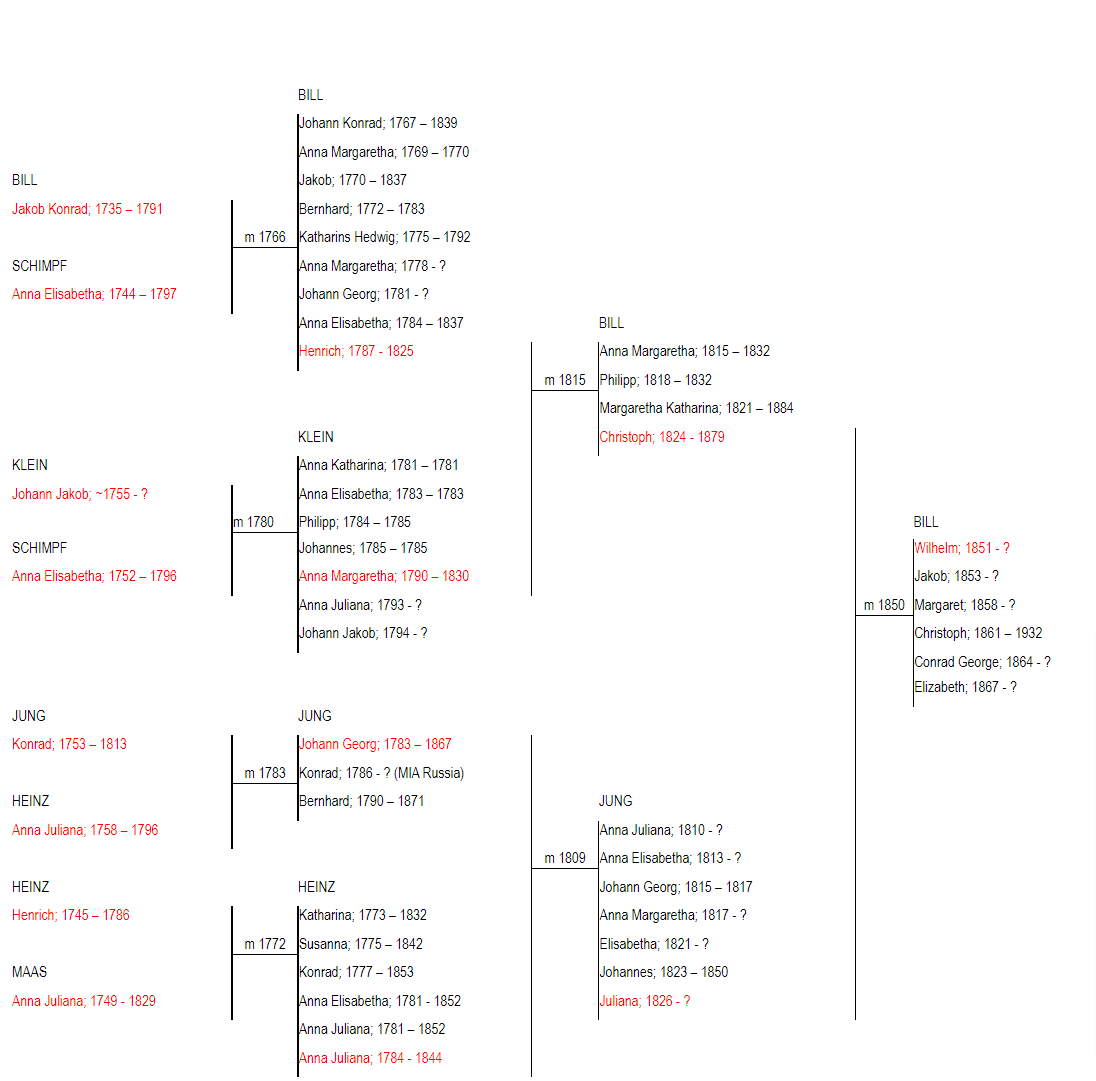Juliana JUNG 1826-?
Juliana was from a family of peasant smallholders who had farmed in the village for centuries. Her earliest known ancestor was Henrich Jung, who was born just after the end of the devastating Thirty Years War. Her father’s generation also suffered the disruptions of war – her uncle Konrad was one of the young men forced to fight alongside French soldiers in Napoleon’s army; he died in the snows outside Moscow. Juliana’s generation was perhaps the most unsettled of all, with most of the breadwinners struggling to support their families from inadequate wages earned as part-time labourers on the new farming conglomerates. Many of the young people made plans to leave the village; Juliana’s only brother was one who made the break but sadly he died at sea on the way to North America.
Like each of her four sisters, Juliana managed to find a husband amongst the young men remaining in the village; on Sunday 30th June 1850, she exchanged vows with Christoph Bill, a son of the shoe-maker Henrich Bill. Juliana presented her husband with a son eleven months later; his sponsor was Johann Wilhelm Beloff, shepherd of the community flocks. In August 1853 a second son, Jakob, was born. The number of people deserting the village started to grow rapidly as news of the widespread gold finds in Victoria filtered into Hessen, and her husband decided to join the exodus.
Juliana left Jakob with foster parents – probably one of her married sisters as her mother had died in 1846. She and Wilhelm accompanied her husband to Liverpool with nearly 40 other villagers; they booked a family berth with Johannes and Katharina Adami; Jakob and Elisabetha Studt; Konrad Beloff, son of Wilhelm’s sponsor, and his ‘wife’ Juliana. (Actually Juliana was his sister – they used this deception so that they could travel in the family quarters rather than the single quarters). Their ship “Sunshine” sailed on 5th November 1856 and reached Melbourne on 29th January 1857 – but without Konrad, who died of food poisoning and was buried at sea.
Christoph and Juliana went to the gold capital of Ballarat and then on to Smythes Creek where other emigrants from Nieder-Weisel were prospecting. In September 1858, Juliana gave birth to their first daughter, Margaretha. Three years later she had a third son, Christoph. The family then moved west to the aptly named diggings at Happy Valley. Two more children were born in their primitive wooden house – Conrad George in 1864, Elizabeth in 1867. Juliana was then 41 years of age and this was the extent of her family. She had to cope with a move to Ballengarook in the mid-1870s, where she tried to establish a permanent home for her children.
Juliana’s hopes for a settled life were shattered on 24th March 1879 when her husband died, in only his 55th year. Bill (Wilhelm) was still single and he was able to keep the family afloat financially as the smaller children grew to adolescence. One by one her children found partners and started their own families – Margaret in 1883, Bill in 1892 and Chris in 1898.
No record of Juliana’s death has been found.
View Juliana's Family Chart

